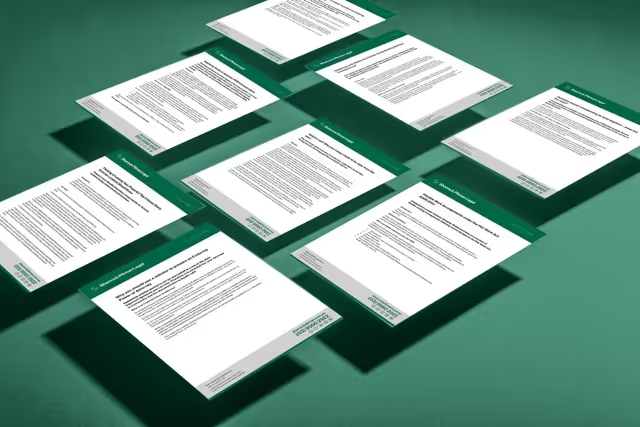Being a first home buyer is an equally exciting and daunting time. With all the information available, it can be quite overwhelming trying to understand the process of purchasing your new home. We have 9 tips to assist you through this process.
Initial Research
- Tip 1: Speak to a mortgage broker or a bank directly and seek finance pre-approval. This will provide you with a general guide as to what your property budget may be and whether you need to save more funds before looking to purchase a property. There are various costs associated with purchasing your first property that you may not have considered before, including:
- Legal/conveyancing fees
- Stamp duty (if you are ineligible for the first home buyers stamp duty exemption or concession). You can estimate your stamp duty payments by using the State Revenue Office’s stamp duty calculator
- Lodgement fees. You can estimate your lodgement fees by using Land Use Victoria’s lodgement fees calculator. It is important to note that this figure will be slightly higher if the vendor has a mortgage.
- Bank fees
- Mortgage broker’s commission
- Mortgage insurance (if your deposit is less than 20% of the purchase price), and
- Moving costs.
- Tip 2: When you have an idea of your budget, you can move on to looking at suitable properties. Once you have found ‘the one’, don’t feel pressured by real estate agents urging you to sign the Contract straight away. Before signing a Contract of Sale, consider the following:
- Seek legal advice on the contents of the Contract of Sale and Section 32,
- Research comparative property prices to form an idea of whether the property is well-priced,
- The time-frame you would need for settlement, keeping in mind you will most likely need to organise finance with a bank or other lender, and
- Whether you need to have a building and/or pest inspections.
- Tip 3: If you are purchasing a property with someone else, you should consider how you would like to be listed on the Certificate of Title, namely whether you will be:
- joint owners,
- tenants in common with equal shares, or
- tenants in common owning different shares (e.g. 60/40).
Discuss these options and your preferences with a lawyer and your bank, as they may have additional requirements, depending on your preference.
Buying a Property: pre-contract signing
- Tip 4: An important consideration is whether the property is being sold by auction or private sale. Depending on this, your rights and your purchase strategy will change because properties purchased at auction are purchased unconditionally.
- Tip 5: If you are purchasing a property off-the-plan, i.e. a property has not been built yet, there will be additional considerations.
- Tip 6: Once you are prepared to sign a Contract of Sale, keep in mind:
- Whether you need to make the offer subject to finance, building and pest inspections (this only applies to properties that are not purchased at auction).
- Whether your offer is within the stamp duty exemption or concession threshold.
- Whether there is a cooling off period that applies in certain circumstances if you do change your mind.
- To thoroughly review and inspect the property, including turning on and off appliances, taking pictures throughout the property, and obtaining a building report if necessary so that you have a good record of the condition of the property on the date of signing the contract. This way, if anything changes before settlement, you have the condition of the property recorded. Such record will assist in avoiding any disputes that may arise regarding the condition of the property at the date of purchase,
- Whether you and the vendor have negotiated any additional conditions. If this is the case, they should be recorded in the Contract of Sale, and
- Not to rely on any representations made by real estate agents. If it is important, the details must be expressed in the Contract of Sale.
Pre-Settlement
- Tip 7: Communicate with your lawyer, who will arrange all the paperwork for you leading up to settlement, and also with your bank and/or mortgage broker, to arrange the mortgage in time for settlement (if required).
- Tip 8: On the date of settlement, if everything has been arranged with your lawyer and your bank/mortgage broker, your only requirement is to prepare to move in. Liaise with your lawyer regarding the settlement time so that you are able to arrange your moving schedule. If you are hiring a mover, ensure they are a member of the Australian Furniture Removers Association, as members are required to carry insurance and adhere to a code of conduct.
Once settlement has completed, you will be able to collect the keys for the property from the real estate agent and move into your first home!
Post-settlement
- Tip 9: After you have moved in, remember to arrange for the connection of your utilities.
How can Sharrock Pitman Legal assist?
We have an Accredited Specialist in Property Law, and as such we can assist with any property related queries you may have, including those relating to purchasing your first property. Feel free to contact Principal and Accredited Specialist in Property Law, Andre Ong on (03) 8561 3317 or alternatively fill in the form below.
The information contained in this article is intended to be of a general nature only and should not be relied upon as legal advice. Any legal matters should be discussed specifically with one of our lawyers.
Liability limited by a scheme approved under Professional Standards Legislation.
Andre is a Principal of Sharrock Pitman Legal.
He heads our Property Law Group and is an Accredited Specialist in Property Law (accredited by the Law Institute of Victoria). He also deals with Commercial Law. For further information, contact Andre Ong on his direct line (03) 8561 3317.










_th-1339574840.jpg)

